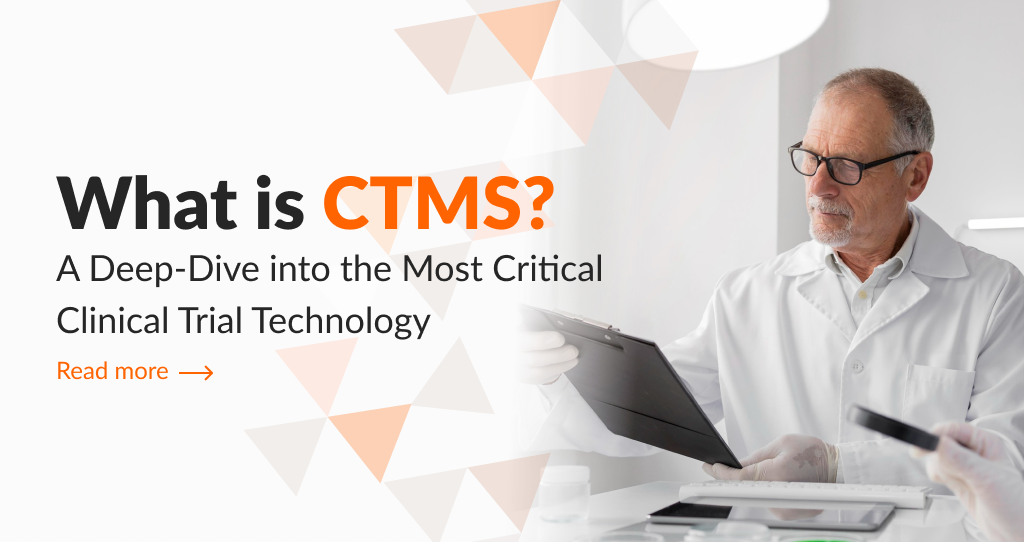Clinical Trial Management Systems (CTMS) are essential tools in the healthcare and pharmaceutical industries, designed to streamline the complex processes involved in clinical trials. These systems enhance efficiency, compliance, and data management throughout the trial lifecycle.
The use of CTMS solutions is widespread among various stakeholders involved in clinical research. This article explores who uses CTMS solutions and how these systems benefit different entities in the clinical trial ecosystem.
1. Pharmaceutical Companies
Role and Importance
Pharmaceutical companies are among the primary users of CTMS solutions. These companies conduct numerous clinical trials to develop new drugs and treatments. Managing these trials involves coordinating multiple tasks, including patient recruitment, regulatory compliance, data collection, and analysis.
Benefits
CTMS solutions help pharmaceutical companies to:
- Streamline Operations: Automate and manage trial workflows, reducing manual effort and errors.
- Ensure Compliance: Maintain compliance with regulatory requirements such as FDA, EMA, and ICH guidelines.
- Enhance Data Management: Centralize data storage and access, improving data accuracy and reliability.
- Optimize Resource Allocation: Track and manage resources efficiently, ensuring optimal use of time and budget.
2. Contract Research Organizations (CROs)
Role and Importance
CROs are hired by pharmaceutical companies to conduct clinical trials on their behalf. They manage various aspects of the trial, from design to execution and monitoring.
Benefits
For CROs, CTMS solutions provide:
- Project Management Tools: Facilitate comprehensive project planning and management, ensuring timely execution of trials.
- Collaboration Platforms: Enable seamless communication and collaboration among team members and stakeholders.
- Data Integration: Integrate data from multiple sources, allowing for real-time monitoring and decision-making.
- Compliance Management: Ensure adherence to regulatory standards, reducing the risk of non-compliance and associated penalties.
3. Academic and Research Institutions
Role and Importance
Academic and research institutions conduct clinical trials as part of their scientific research efforts. These trials are often aimed at understanding disease mechanisms, testing new treatments, and improving patient outcomes.
Benefits
CTMS solutions offer these institutions:
- Data Organization: Organize and manage large volumes of research data efficiently.
- Regulatory Compliance: Ensure trials are conducted in accordance with ethical and regulatory standards.
- Resource Management: Track the use of resources, including funding, personnel, and equipment.
- Publication Support: Facilitate data analysis and reporting, aiding in the publication of research findings.
4. Hospitals and Healthcare Providers
Role and Importance
Hospitals and healthcare providers are involved in clinical trials to offer patients access to new treatments and to contribute to medical research. They often collaborate with pharmaceutical companies and CROs.
Benefits
CTMS solutions help these providers by:
- Patient Management: Manage patient recruitment, enrollment, and follow-up efficiently.
- Data Collection: Ensure accurate and timely collection of clinical data.
- Regulatory Compliance: Maintain compliance with healthcare regulations and ethical standards.
- Quality Control: Enhance the quality of care provided to trial participants through better monitoring and management.
5. Government Agencies
Role and Importance
Government agencies such as the National Institutes of Health (NIH) and the Food and Drug Administration (FDA) play crucial roles in overseeing and funding clinical trials. They ensure that trials are conducted ethically and that the data generated is reliable.
Benefits
CTMS solutions support government agencies by:
- Monitoring and Oversight: Provide tools for monitoring trial progress and compliance with regulatory standards.
- Data Management: Facilitate the management and analysis of large datasets.
- Funding Allocation: Ensure that funds are used efficiently and that trials stay within budget.
- Transparency and Reporting: Enhance transparency and reporting, ensuring public trust in clinical research.
6. Biotechnology Companies
Role and Importance
Biotechnology companies are involved in developing new biological therapies and diagnostic tools. These companies conduct clinical trials to test the safety and efficacy of their products.
Benefits
CTMS solutions assist biotech companies by:
- Innovation Management: Manage complex trial protocols and innovative study designs.
- Collaboration Tools: Enable collaboration with academic institutions and healthcare providers.
- Regulatory Adherence: Ensure compliance with specific regulatory requirements related to biotechnology products.
- Data Integration: Integrate genomic, proteomic, and clinical data for comprehensive analysis.
7. Medical Device Companies
Role and Importance
Medical device companies develop new diagnostic and therapeutic devices. Clinical trials are essential to test these devices before they can be marketed.
Benefits
CTMS solutions provide these companies with:
- Protocol Management: Manage complex trial protocols specific to medical devices.
- Compliance Tracking: Ensure adherence to regulations such as ISO standards and FDA requirements.
- Data Management: Collect and manage device performance data efficiently.
- Risk Management: Identify and mitigate risks associated with device trials.
8. Regulatory Authorities
Role and Importance
Regulatory authorities oversee the conduct of clinical trials to ensure they meet legal and ethical standards. They review trial protocols, monitor compliance, and approve new therapies based on trial data.
Benefits
CTMS solutions help regulatory authorities by:
- Protocol Review: Streamline the review of trial protocols and amendments.
- Compliance Monitoring: Enhance the monitoring of trial sites for compliance with regulatory requirements.
- Data Analysis: Facilitate the analysis of trial data to support decision-making.
- Transparency: Improve transparency in the regulatory review process.
Conclusion
CTMS solutions are indispensable tools for a wide range of stakeholders involved in clinical trials. From pharmaceutical companies to regulatory authorities, these systems enhance efficiency, compliance, and data management across the clinical trial lifecycle.
By automating workflows, ensuring regulatory adherence, and centralizing data, CTMS solutions contribute significantly to the advancement of medical research and the development of new treatments and therapies.




